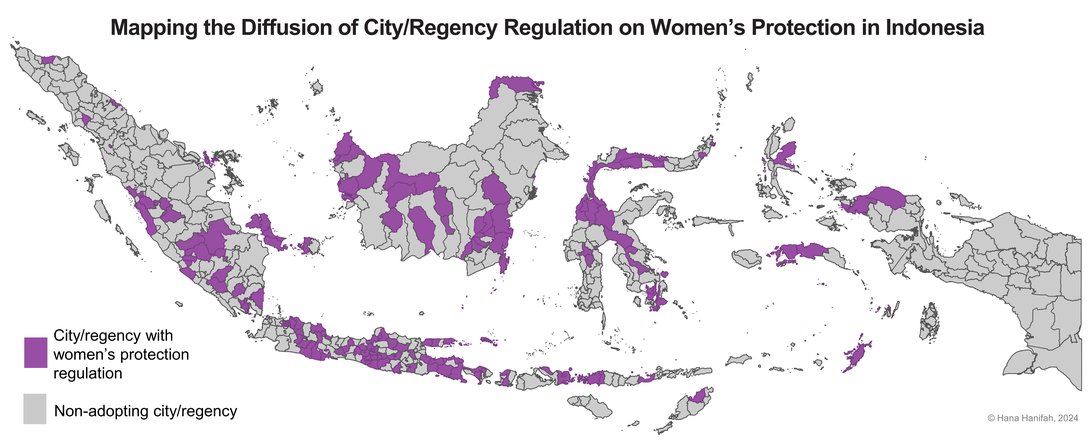Diffusion of Policy to Address Violence Against Women: Implementation Evidence from Indonesia
Many countries globally have adopted national policy commitments to address violence against women (VAW). Yet the implementation of these policies largely relies on subnational governments’ actions. Why do some but not all subnational governments adopt policies to implement VAW response services? Surprisingly, few studies have addressed this question. Drawing on norm diffusion and gender policy reform theories, we assess the factors driving the adoption of these local policies in Indonesia. Since Indonesia adopted its domestic violence law in 2004, only one-third of cities/regencies have adopted local regulations (peraturan daerah) on VAW response services. Using event history analysis, we analyzed data from 509 cities/regencies from 2004 to 2022. Our findings show that the presence of local non-governmental organizations (NGOs) connected to national and transnational VAW advocacy networks, and women’s local legislative representation are significant factors. However, province-level morality regulations constrain the progressive effects of the VAW advocacy networks and women’s political presence.

Suggested Citation:
Hanifah, Hana; True, Jacqui; Mavisakalyan, Astghik; Flynn, Asher (2025). Diffusion of Policy to Address Violence Against Women: Implementation Evidence from Indonesia. Monash University. Dataset. https://doi.org/10.26180/29500343.v1
Last updated: Sep 2025